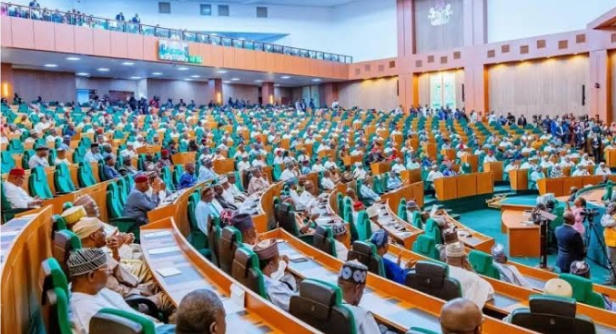The House of Representatives has launched a comprehensive investigation into the disbursement and utilization of over N12 trillion in public funds allocated to Nigeria’s Development Finance Institutions (DFIs) over the past seven years.
The probe, announced during the inauguration of an Ad-Hoc Committee on Wednesday, aims to scrutinize the operations, funding mechanisms, and performance of key DFIs amid mounting concerns over transparency, accountability, and impact.
Chairman Sets Scope of Inquiry
Committee Chairman Hon. Chidi Mark Obetta told journalists that the inquiry would examine how funds—sourced from capital injections, budget allocations, bond issuances, concessional loans, and donor support—have been deployed by institutions such as:
- Bank of Industry (BOI)
- Bank of Agriculture (BOA)
- Nigeria Export-Import Bank (NEXIM)
- Infrastructure Bank
- Nigeria Incentive-Based Risk Sharing System for Agricultural Lending (NIRSAL)
- Development Bank of Nigeria (DBN)
“The figure of over N12 trillion is preliminary and subject to verification,” Obetta said. “We will demand fully audited records of inflows and expenditures from each DFI.”
The committee will assess whether funds reached intended beneficiaries, supported priority sectors like agriculture, SMEs, and infrastructure, and delivered measurable outcomes in job creation, industrial growth, and export expansion. Loan recovery and fund recycling mechanisms will also come under review.
“This is not a punitive exercise but a reform-driven one,” Obetta emphasized. “We want to strengthen these institutions to become true engines of inclusive growth and poverty reduction.”
The panel plans to engage DFI leadership, the Central Bank of Nigeria (CBN), the Ministry of Finance, development partners, sector experts, and actual fund beneficiaries in a transparent, evidence-based process.
Speaker Warns of Funding Cuts
Speaker Rt. Hon. Tajudeen Abbas, represented by Deputy House Leader Hon. Halims Abdullahi, expressed alarm at the DFIs’ underwhelming performance despite massive funding.
“Many of these institutions have failed to make a dent in Nigeria’s Multidimensional Poverty Index or drive meaningful SME growth,” Abbas said. “Political interference, lack of transparency, and excessive risk aversion have crippled their impact.”
He issued a stern warning: “The House will no longer approve budgetary allocations to any DFI that cannot demonstrate responsible financial management and tangible results.”
Abbas stressed that public funds must directly fuel productive sectors and reach citizens, not be lost to bureaucratic delays or diversion.
CBN, NEXIM Pledge Full Cooperation
CBN Governor Yemi Cardoso, represented by Director Ibrahim Hassan, assured the committee of the apex bank’s full support. “The CBN regulates DFIs to ensure compliance, financial soundness, and stability,” Hassan said. “We will provide all necessary technical and institutional assistance.”
Mr. Abba Bello, Managing Director of NEXIM Bank, welcomed the probe as “timely and necessary.” He affirmed that DFIs must drive job creation, industrial development, and foreign exchange earnings, pledging his institution’s complete cooperation.
Expected Outcomes
The Ad-Hoc Committee is expected to submit policy recommendations to enhance the efficiency, transparency, and accountability of Nigeria’s DFIs—ensuring they fulfill their mandates as catalysts for sustainable economic development.
The investigation comes at a critical juncture as the federal government pushes economic reforms aimed at diversification, industrial revival, and inclusive growth.

